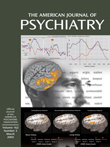Extensions of Errorless Learning for Social Problem-Solving Deficits in Schizophrenia
Abstract
OBJECTIVE: There is a clear need to develop psychosocial rehabilitation methods that compensate for neurocognitive deficits common to persons with severe and persistent mental illness. Errorless learning, a compensatory training intervention, has been successful in teaching entry-level job tasks. However, errorless learning’s applicability to broader, more complex functions is unknown. The present study tested the extension of errorless learning for deficits in social problem-solving skills in patients with schizophrenia. METHOD: Sixty clinically stable outpatients with schizophrenia or schizoaffective disorder were stratified by gender and level of memory impairment before being randomly assigned to one of two training programs: errorless learning or symptom management. Groups were matched for training time, format and structure of training, and types of teaching aids used. Social problem-solving ability, measured by the Assessment of Interpersonal Problem-Solving Skills, was assessed at baseline, within 2 days of training completion, and after 3 months. Dependent measures were the scores for the receiving, processing, and sending skills areas from the Assessment of Interpersonal Problem-Solving Skills. RESULTS: A repeated-measures analysis of covariance was conducted for each dependent measure with baseline Assessment of Interpersonal Problem-Solving Skills score entered as a covariate. For all three skills, there was a significant training group effect favoring errorless learning. Durability of errorless learning training effects extended to the 3-month follow-up assessment for processing and sending skills but not receiving skills. CONCLUSIONS: Results support the extension of errorless learning to complex functions such as social problem-solving skills in the rehabilitation of persons with schizophrenia.



